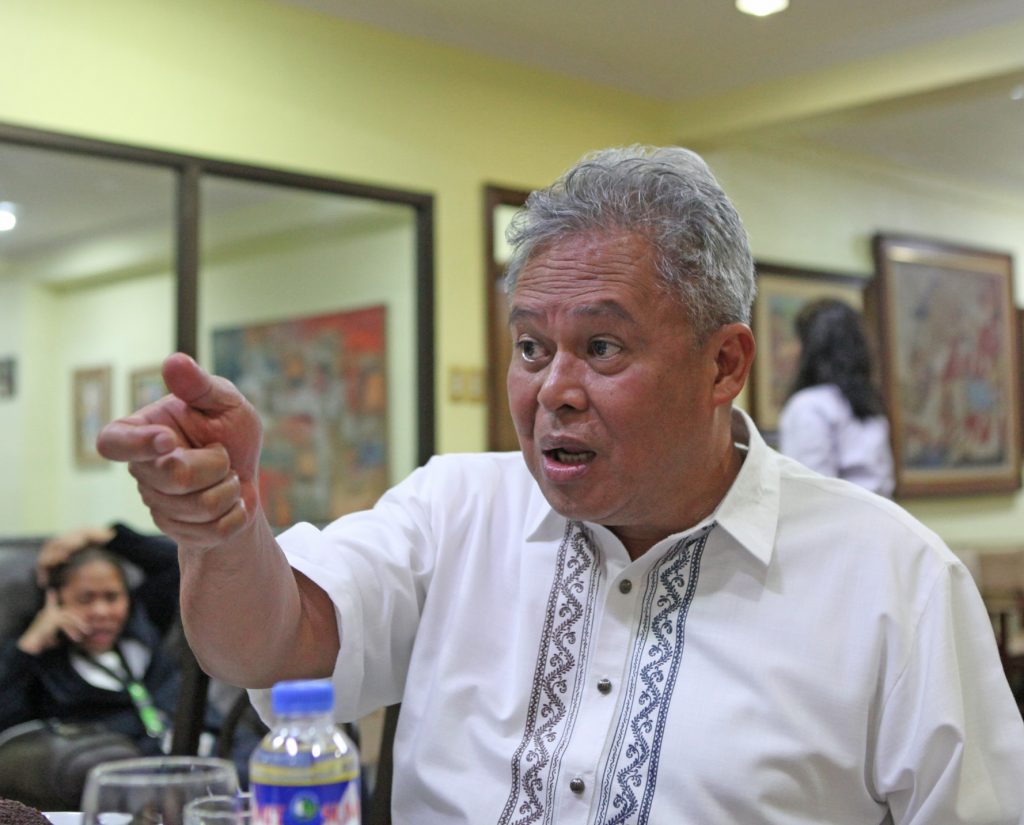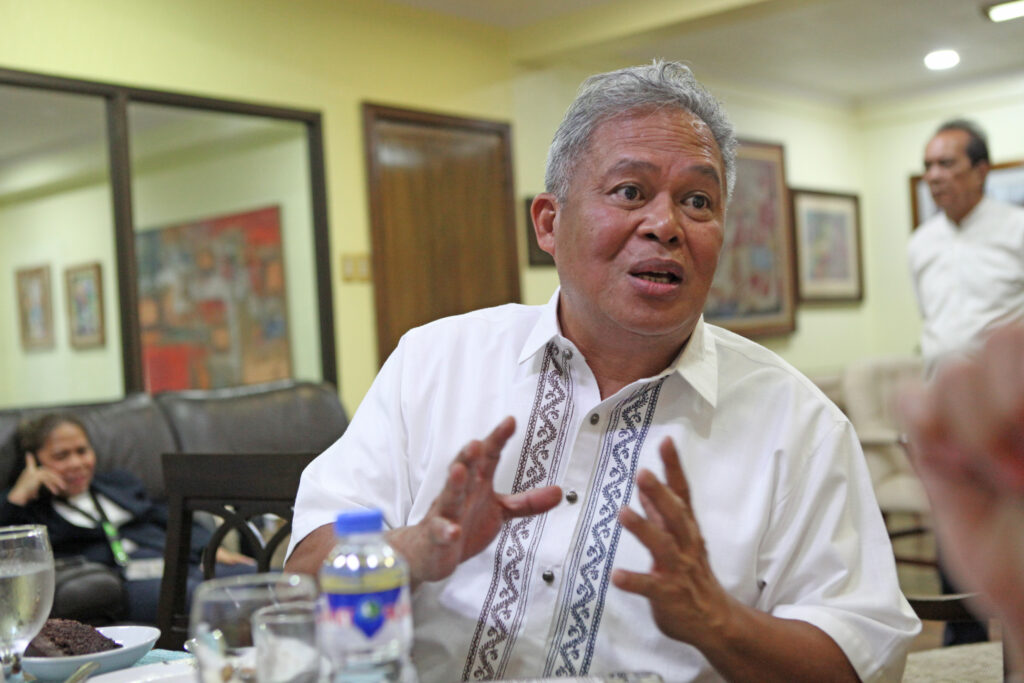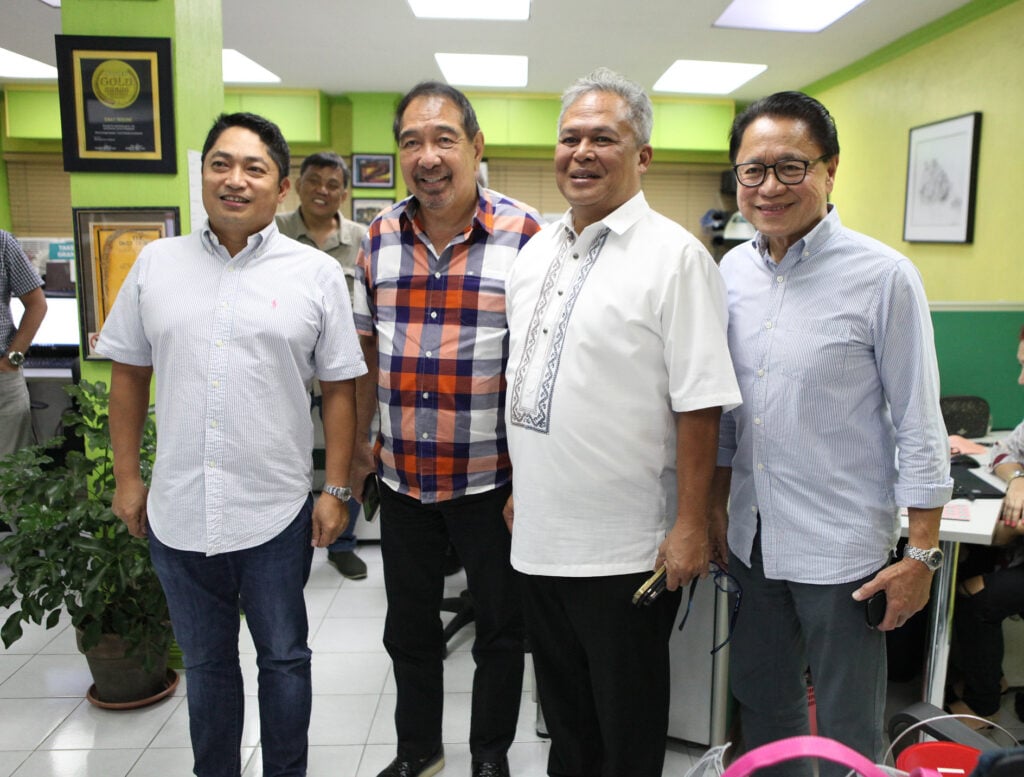
A few fortnights ago, Brig. General Gregorio Catapang Jr. hogged the limelight when he was named Director General of the Bureau of Corrections.
Prior to its new head’s assumption to office, this government agency, crucial to the success of the justice system in our country, had been the subject of controversial talk and writing that allude to mismanagement, graft and corruption, dangerous drugs trade, among other organizational ills and flaws in the institution’ leadership.
That Catapang’s appointment had been met with praise and great expectations merely affirms his sterling record as a bemedaled military officer. Among his 28 awards and badges are the Philippine Legion of Honor with the Degree of Chief Commander and Officer, Distinguished Service Star and the Distinguished Conduct Star.
His story as a public servant is worth telling, as it shows the rise of a man who, at an early age, had seen turmoil and chaos in his own country, all these in a political regime headed by an astute and brilliant man, Ferdinand E. Marcos Sr., whom the young Catapang admired. This same young man would choose to pursue a career in the military and distinguish himself as a principled commander.
Catapang’s recent guesting in a Daily Tribune online show allowed us a face-to-face encounter with the gentleman and officer who, by his appointment to the top post at the Bureau of Correction, replacing a controversial and crime-implicated head, had become the man of the hour.
Adding to the buzz is the gentleman’s interesting family name, Catapang, which roughly translates to “How Brave” in English. Thus has it been surmised, even if spoken with one’s tongue in cheek, that here is one public servant who will boldly and fiercely face a challenge, no matter how daunting.
Undoubtedly, It is this family name connoting valor and bravery that precedes the reputation of retired general Gregorio Pio Punzalan Catapang Jr., who also served as the 45th Chief of Staff of the Armed Forces of the Philippines.
But if the gentleman officer is fearless, he is, at the same time, judicious and cautious.
Need for reform
When Catapang was appointed by President Ferdinand Marcos Jr. to his current post, he saw that he was in for a big challenge.
“I pondered about many questions because I saw a lot of paradoxes in the way the agency was being run. For starters, why are they called ‘persons deprived of liberty’ when many of them are enjoying their life in prison? On the other hand, instead of being prepared for a new life after they have served their sentence, these people end up dying, their bodies left to disintegrate inside the morgue. So, I had some 140 cadavers buried,” he recounted.
“There is a need for these inmates to be reformed. We should make sure they don’t get involved in crimes. They should not end up being drug addicts. Drugs were rampant. That was how I was brought there. I was really determined to help the Secretary of Justice, my fraternity brother, Boying Remulla.”
A commander through and through
Of course, he had always believed in the incumbent president. “From the time he was running for Vice President, he was always for unity, and that was very impressive to me. He has always wanted to unite the country. It is, to me, the best battlecry a leader could have, especially at a time when the superpowers are fighting over us. If we don’t have unity, they’ll divide and rule.”
Catapang brings to the BuCor his exceptional record as a leader. He affirmed, “I am a meticulous commander through and through. I have never occupied a deputy position. I have always been the boss. Right from the start as platoon leader to company commander and battalion commander. Never a deputy. I have since decided my personal management style is to be meticulous. I always have meetings with my men.”
Of his many assignments, he remembered his Northern Luzon stint as challenging.
“I was the NOLCOM Commander. I was based in Tarlac, which was north of Metro Manila. As Northern Luzon Commander, one was in charge of the Army, Air Force, and Navy assigned to the area. That included Fuga Island in the northernmost part of the country. And Batanes, too. It was like going home because when I was still a lieutenant, I was assigned in Central Luzon. It was a most challenging time because the National People’s Army was at the height of its insurgency activities. People were dying, including servicemen, American retirees and the police. Even those who were manning the traffic were being gunned down by dissidents. It was the time of the Sparrow Unit. We had encounters with the NPA everyday.”
Protected by his guardian angel
That he has survived through the years, claiming he had had to face death nine times, he attributes to his guardian angel. “I almost died as a kid. I loved to move around and so, after I received the Holy Communion one Sunday, I fell off our staircase. Our house was being built then. I would run up and down and around, and once, I accidentally jumped from the roof and would have hit the ground but my shirt hit upon a branch of the tree and I got stuck in mid-air, giving the witnesses a chance to catch me as I eventually fell down.
“My mother said, ‘Your guardian angel took care of you because you had just received your first communion so you better behave. I could count the number of times I could have died or been killed. It was nine times.”
Catapang claimed, “It was really my destiny to be a military man.”
He said, “My parents were dedicated and honest government employees. My father, Gregorio Senior, was a lawyer with the Securities and Exchange Commission. My mother, Lourdes, was an accountant with the Department of Finance.
“I grew up in a simple home in Quezon City. My parents’ priority was the education of their children and they worked hard to send me to Claret School which had a reputation for giving its students a strong grounding in academics, thus producing graduates who mostly went to college at the University of the Philippines.”
While theirs was not a hand-to-mouth existence, the family scrimped on their resources. “As enrolment neared, my parents would borrow money using their only piece of property as collateral. They would pay for its amortization in the next 12 months and, when it was fully paid, the next enrolment had come,” he recalled.
Named after heroes
His baptismal name predicted his future. “I was named after Gregorio del Pilar. And also Pio del Pilar. My younger brother was named Jose Protacio.
“You should be careful when you name your children because their name leads them to the lives they will live,” he half-jested.
Evident from his youth was his interest in academics. “I was a homebody and did not maintain a set of friends or barkada. To cope with the demands of the stringent academic requirements, I spent most of my time reading and studying.”

An early idol “from my youth was President Ferdinand Ferdinand E. Marcos. I always followed his career. He was a genius. The country was under martial rule and everything revolved around him. He changed the political landscape. Marcos was a great leader and wanted his name etched in the annals history. The many projects that have been implemented later were conceptualized during his time like the C5 Road.
“I think there was only one problem about his leadership. He did not provide for a smooth leadership turnover. Of the 12 laws of leadership that he followed, he failed in only one, which was to train a successor. What happened was a power struggle ensued as the leaders under him expected him to be gone.”
Growing up in Project 6, Catapang witnessed “a tumultuous phase in our country’s history when rallies would reach as far as our community in Project 6. It was the time of the Diliman commune and people were running.”
Catapang’s journey as a leader began in high school when he represented Claret School in the national convention of the Children’s Museum and Library, Inc. He was elected at the top of the board of directors by the 1,000-plus delegates. “I followed my adviser’s instruction that I stand firm and tall,” he shared. It was the stance of a confident young man and that attracted the attention of fellow delegates. When it came time for the elected board to elect the officers, he got one that was at the bottom of the rung, which was auditor.

From PMA to UP
Since he was aware of his parents’ financial standing, Catapang aimed for UP and the Philippine Military Academy, knowing that the students in both schools were state scholars.
After his high school graduation in 1977, “the PMA results came out first, and so I took the first bus that went up to Baguio and presented myself. I knew I could not be late because I might be classified as ‘AWOL’ and my slot would be given to those in the waiting list. I did not wait anymore for the UP exam results.”
He was already a first lieutenant when he participated in the faculty recruitment program of the PMA. One was allowed to go on study leave for two years, after which he would be given a faculty position in the academy. He originally applied for a study leave to pursue law at UP. Instead, he was given a scholarship grant to pursue Master of Arts in Political Science.
UP would give him a progressive outlook. “I was recruited to the Upsilon fraternity. My initiation was quite challenging. Later I found out that they suspected me to be a military infiltrator and when my brods who would be conducting the initiation sought the advice of the fraternity’s elders, they were told to make the initiation doubly hard for me just to make sure I was not there just to spy.”
Later, while still at the University of the Philippines, he would join the Reform the Armed Forces of the Philippines Movement. It was Catapang who gave their group the name RAM. He points out that there were three kinds of RAM, He was part of the reformist group which began in 1983. They were the junior officers that included Vic Batac, Flores and Gringo Honasan.
The following years would see his continuous promotion, aided by his zeal for the service and loyalty to his country.
When he became the Chief of Staff, Catapang exhorted the troops “to strictly adhere to the AFP’s slogan of “Kawal DISIPLINADO, bawal ABUSADO, dapat ASINTADO.” Roughly translated, he demanded of his men discipline and keenness not only with their mark but in their duty, while condemning military abuse of their authority.
These three key words, according to him, “should be followed by every AFP personnel for them to become proficient in fire and maneuver and be able to avoid collateral damage; be respectful of human rights, adhere to international humanitarian law and rule of law, as well as the rules of engagement of the IPSP Bayanihan.”
Early on in his career, his prayer to “marry my first girlfriend,” was granted by the Almighty. Catapang would sire children and name them according to the family tradition of choosing lofty nationalistic terms, namely: Rally (“rally”), born in 1984; Rev (“revolution”), born in 1986 when the People Power Revolution took place; Coup’dy (“coup d’état”), born in 1987, at the height of coup attempts against President Cory Aquino; Ysa (pagkakaisa, Tagalog for “unity”), born in 1993 when the president was Fidel V. Ramos whom Catapang admired “for uniting the Armed Forces.”; and Best General, the superlative in allusion to giving his best in his various positions all the way to being Chief of Staff.

The following are excerpts from the Daily Tribune Interview with the author:
Daily Tribune (DT): Your leadership has always been recognized for your success in civil relations. How did this come about?
Gregorio Catapang Jr (GCJ): I learned this from UP. According to the Art of War by Sun Tzu, the greatest strategy was to win over your enemy without firing a single shot. I have read Sun Tzu several times, and I read that the only way to win over one’s enemy is to build alliances. If we were all friends, we would have only one single enemy. And the enemy would be overwhelmed by the fact that we are all friends and allies.
DT: How do you brush up on your leadership skills?
GCJ: From my younger days, I always loved to read. I had the advantage of taking my graduate studies at the University of the Philippines. We had the biggest library and so I learned everything I could. I learned about such matters as the coup de etat. I would stay in the library the whole day when I did not have classes.
DT: What is your stand on compulsory military training?
GCJ: I advocate compulsory military training because we need it. We are in the middle of a superpower rivalry. Anytime there can be war. Any of the superpowers could declare it. And if they miscalculate each other, there will be war. Miscalculation can lead to war.
DT: What’s in your bucket list?
GCJ: Hopefully to finish my reform agenda in BuCor. And then, I hope I can catch up with my readings in Non-Fiction. Especially about understanding what’s happening around the world.
DT: What are your favorite books?
GCJ: Books about world’s statesmen like Henry Kissinger and Hillary Clinton. Especially leaders who write their own autobiographies. I like inspirational books. And books that contain advice on leadership like those written by management guru Johyn Maxwell. I love his 48 Laws of Leadership.
DT: What else do you want to achieve?
GCJ: I want to finish my mission at BuCor. It’s what’s keeping keeping me busy.
DT: What’s your prayer for this country?
GCJ: A: My prayer is for unity. If your country is not united, you will be destroyed. You will be destroyed from the outside.
DT: What do you want to do after you retire?
GCJ: Go back to farming. It’s really part of me because when I was the Chief of Staff, I would often say that in the 21st century, all the wars we’ll be facing will be global. Global climate change, global transnational crime, global territorial claims, transnational crime, drug smuggling, human trafficking, cybercrime, all these did not come from us. Going back to farming is basic. It is being in touch with your roots and realizing the gift of home and of being Filipino. The best form of gratitude is to go back to your roots and the land that has nourished you and your loved ones.
Source: https://tribune.net.ph/2023/05/01/gen-gregorio-catapang-jr-fearless-by-no-other-name/
